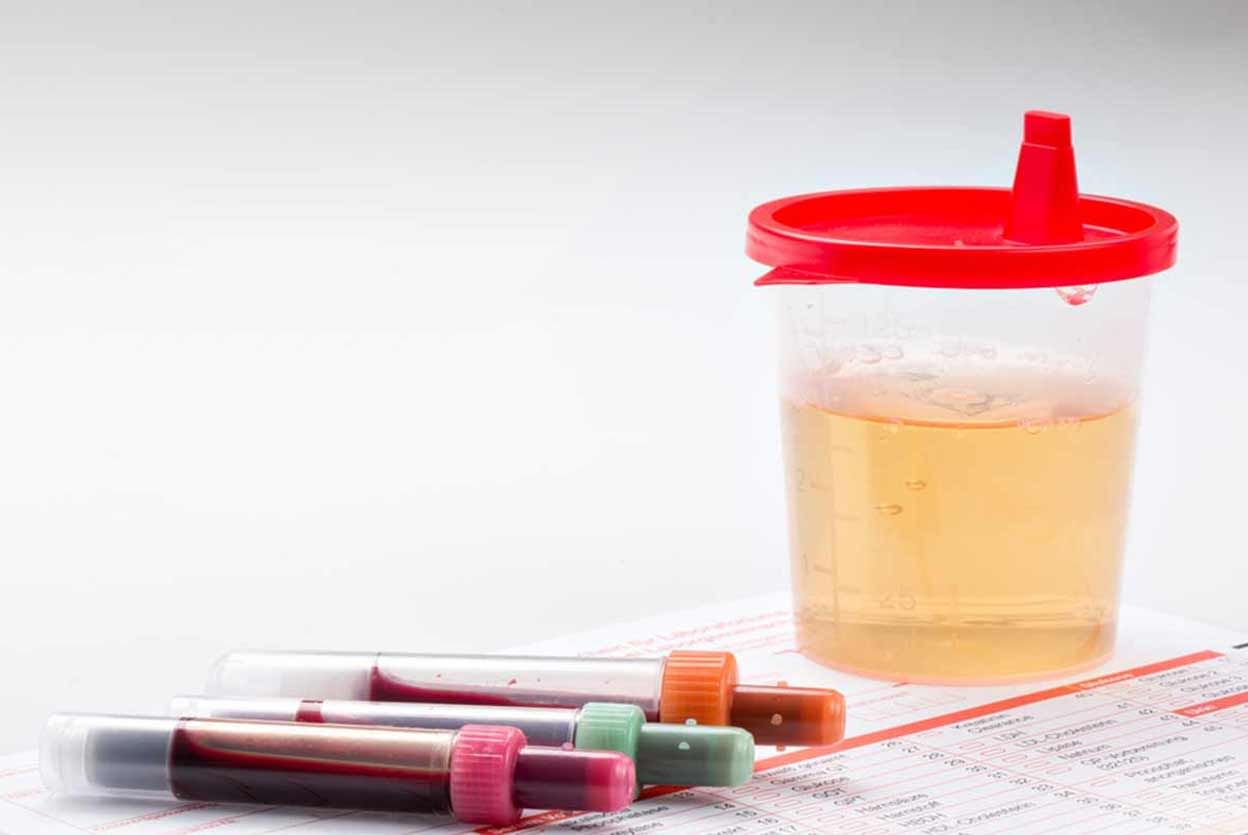Get the App
For Doctors
Login/Sign-up
About
Health Feed
Find Doctors
Health Packages
AllQ&AsTipsQuizzes
Implementation Bleeding Tips
Last Updated: 7 years ago• Featured Tip
Share
Bookmark
Report
Blood in urine, medically known as Hematuria is not usually a cause of concern, but it can translate into an adverse condition if left unevaluated. The kidneys and other structures in the urinary tracts such as urethra (tube connecting the bladder to the outer part of the body); bladder (that stores the urine) and ureters (tube joining the bladder to the kidney) are the sources of blood flow to the urine. Hematuria can be accompanied by symptoms such as discharge of tea-colored, brownish-red or ...more
Last Updated: 7 years ago• Featured Tip
Share
Bookmark
Report
Gastrointestinal bleeding, as the name suggests, is characterized by bleeding in the gastrointestinal (GI) tract and its accessory organs (esophagus, stomach, colon, small intestine, rectum, and anus). The bleeding also referred to as gastrointestinal hemorrhage, is not a disease in itself. However, it may be an indication of a disease, injury or infection in the digestive tract of a person. The bleeding in the GI tract may be mild to chronic (often fatal), depending on the severity of the condi...more
Last Updated: 7 years ago• Featured Tip
Share
Bookmark
Report
A nose bleed can take place due to a number of reasons, which usually all boil down to acute dryness of the nasal passages. The nosebleed and dryness can stem from sinus, allergic reactions, constant blowing of the nose, infections, and also during very harsh winter months when there is no lubrication in the nose. Nose bleed can also occur due to conditions, such as high blood pressure and when a foreign object gets stuck inside the nose.
Here are a few tips on treating nosebleeds:
...more
Here are a few tips on treating nosebleeds:
...more
Last Updated: 7 years ago• Featured Tip
Share
Bookmark
Report
What is menopause?
Menopause is that phase in the life of a woman when she can no longer reproduce. It involves the loss of fertility and the cessation of the menstrual cycle. The woman will stop bleeding every month and the ovaries stop producing eggs that can be fertilized. Menopause normally sets on after the age of 40 and bleeding may permanently stop by the age of 50.
Post menopausal bleeding
You are known to reach menopause when you have not been bleeding for 1 entire year...more
Menopause is that phase in the life of a woman when she can no longer reproduce. It involves the loss of fertility and the cessation of the menstrual cycle. The woman will stop bleeding every month and the ovaries stop producing eggs that can be fertilized. Menopause normally sets on after the age of 40 and bleeding may permanently stop by the age of 50.
Post menopausal bleeding
You are known to reach menopause when you have not been bleeding for 1 entire year...more
Last Updated: 8 years ago• Featured Tip
Share
Bookmark
Report
A girl s first period or Menarche marks her transition from a girl to a woman . Most girls have their first period between the ages of 11 to 13 depending on their genetic structure, body weight, nutrition and maturity of the hypothalamic-pituitary-ovarian axis. Periods are usually irregular in the first two years and gradually settle into a pattern. Along with the duration of the periods, there may also be fluctuation in the amount of blood being lost. Puberty menorrhagia can be described as ...more
Last Updated: 8 years ago• Featured Tip
Share
Bookmark
Report
What is menopause?
Menopause is that phase in the life of a woman when she can no longer reproduce. It involves the loss of fertility and the cessation of the menstrual cycle. The woman will stop bleeding every month and the ovaries stop producing eggs that can be fertilized. Menopause normally sets on after the age of 40 and bleeding may permanently stop by the age of 50.
Post menopausal bleeding
You are known to reach menopause when you have not been bleeding for 1 entire year...more
Menopause is that phase in the life of a woman when she can no longer reproduce. It involves the loss of fertility and the cessation of the menstrual cycle. The woman will stop bleeding every month and the ovaries stop producing eggs that can be fertilized. Menopause normally sets on after the age of 40 and bleeding may permanently stop by the age of 50.
Post menopausal bleeding
You are known to reach menopause when you have not been bleeding for 1 entire year...more
Last Updated: 8 years ago• Featured Tip
Share
Bookmark
Report
Most women attain menopause between the ages of late 40s and early 60s, the average age being about 51. This is an important milestone in a women-s gynecological history. One major change is altered female hormone levels, and this leads to a lot of physiological changes. From hot flashes to mood swings, there is also increased predisposition to osteoporosis and uterine cancer.
If you have not had your menstrual cycles for close to 12 months, chances are you are into menopause. So, that ...more
If you have not had your menstrual cycles for close to 12 months, chances are you are into menopause. So, that ...more
Last Updated: 7 years ago• Featured Tip
Share
Bookmark
Report
A blood clot (also called a thrombosis) is a mass or clump of blood that forms when blood changes from a liquid to a solid.
The body normally makes blood clots to stop the bleeding after a scrape or cut. But sometimes blood clots can partly or completely block the flow of blood in a blood vessel, like a vein or artery. This can cause damage to body organs and even death.
Most women with blood clotting conditions have healthy pregnancies. But these conditions may cause problem...more
The body normally makes blood clots to stop the bleeding after a scrape or cut. But sometimes blood clots can partly or completely block the flow of blood in a blood vessel, like a vein or artery. This can cause damage to body organs and even death.
Most women with blood clotting conditions have healthy pregnancies. But these conditions may cause problem...more
Last Updated: 7 years ago• Featured Tip
Share
Bookmark
Report
Pregnancy is a beautiful phase for any woman, and should be enjoyed to the fullest. That being said, pregnant women need to take care of their health at all times, as a young life depends on them. Taking into account how paranoid a to-be mother can be, any form of bleeding during pregnancy can cause a lot of trepidation. However, a lot of this worry is not really required at all.
A lot of pregnant women bleed during the first trimester of their pregnancy. As a matter of fact, many who b...more
A lot of pregnant women bleed during the first trimester of their pregnancy. As a matter of fact, many who b...more
Last Updated: 7 years ago• Featured Tip
Share
Bookmark
Report
Gastrointestinal bleeding, as the name suggests, is characterized by bleeding in the gastrointestinal (GI) tract and its accessory organs (esophagus, stomach, colon, small intestine, rectum, and anus). The bleeding also referred to as gastrointestinal hemorrhage, is not a disease in itself. However, it may be an indication of a disease, injury or infection in the digestive tract of a person. The bleeding in the GI tract may be mild to chronic (often fatal), depending on the severity of the condi...more
Ask a free question
Get FREE multiple opinions from Doctors
posted anonymously





















